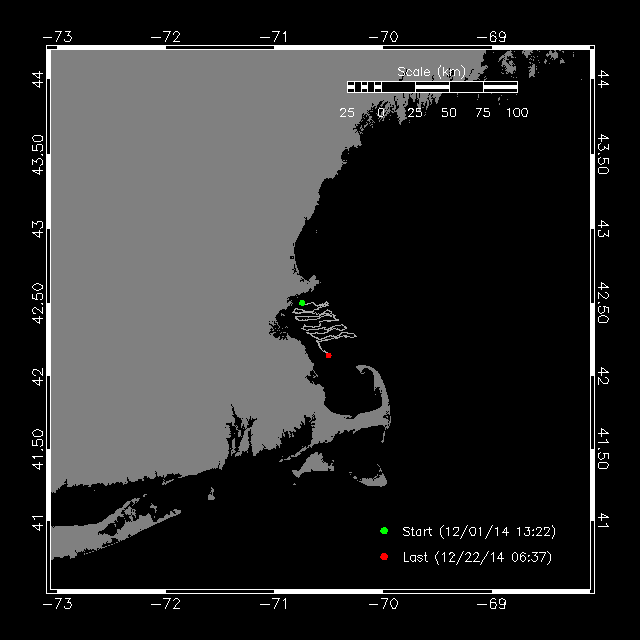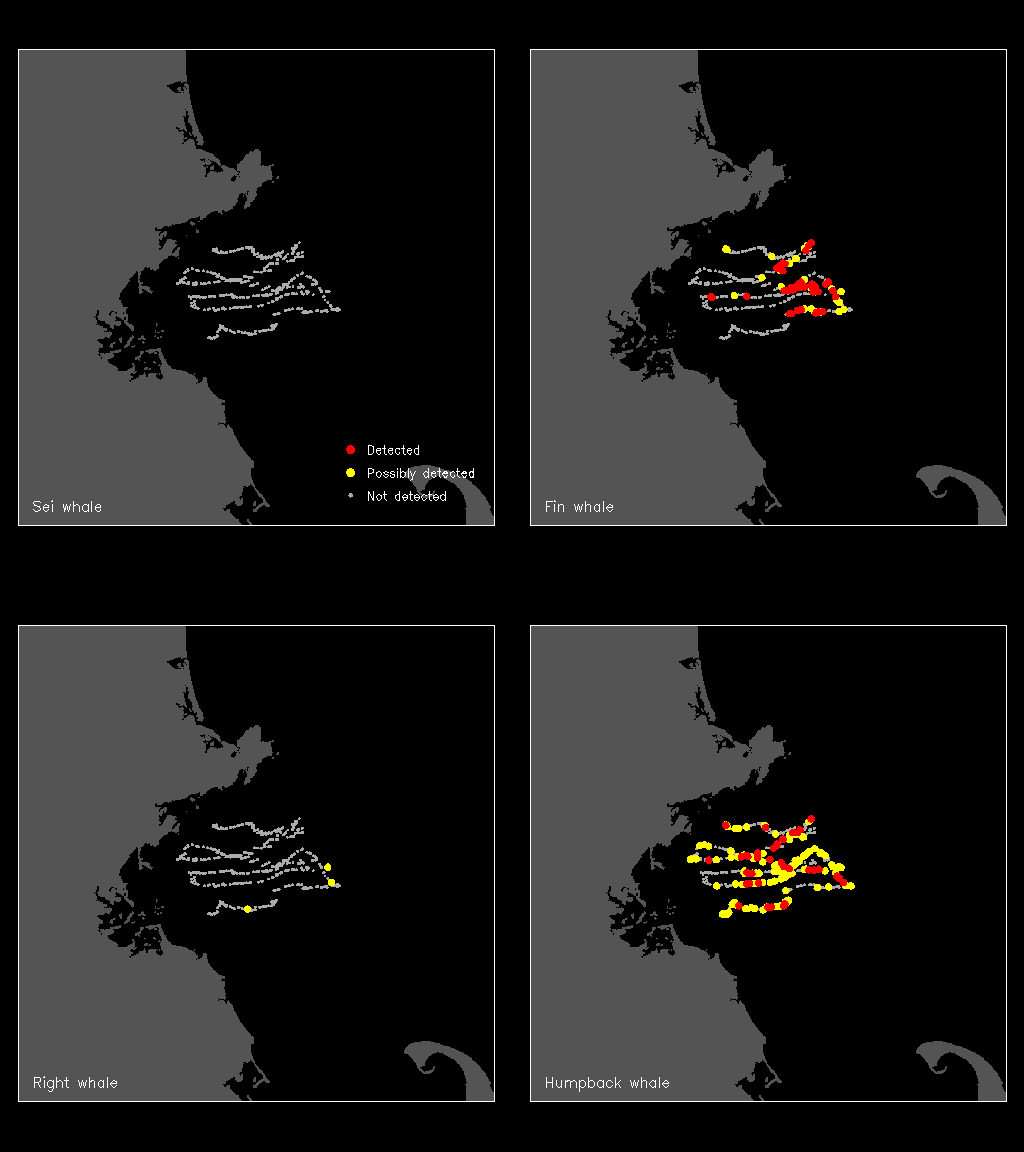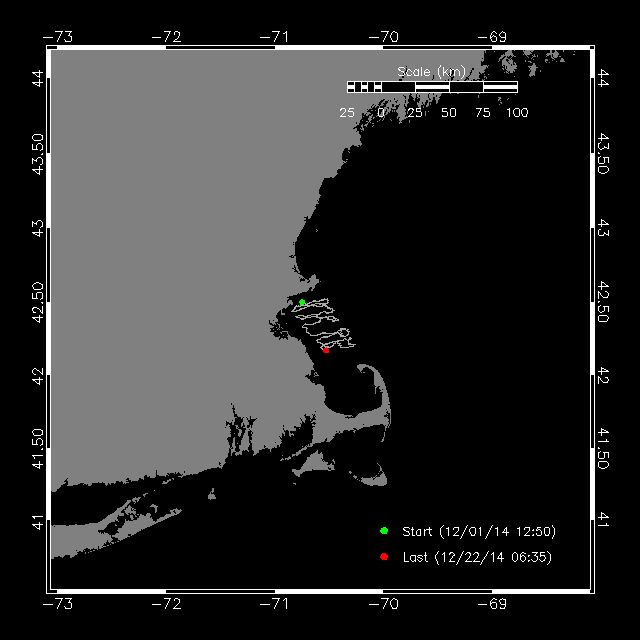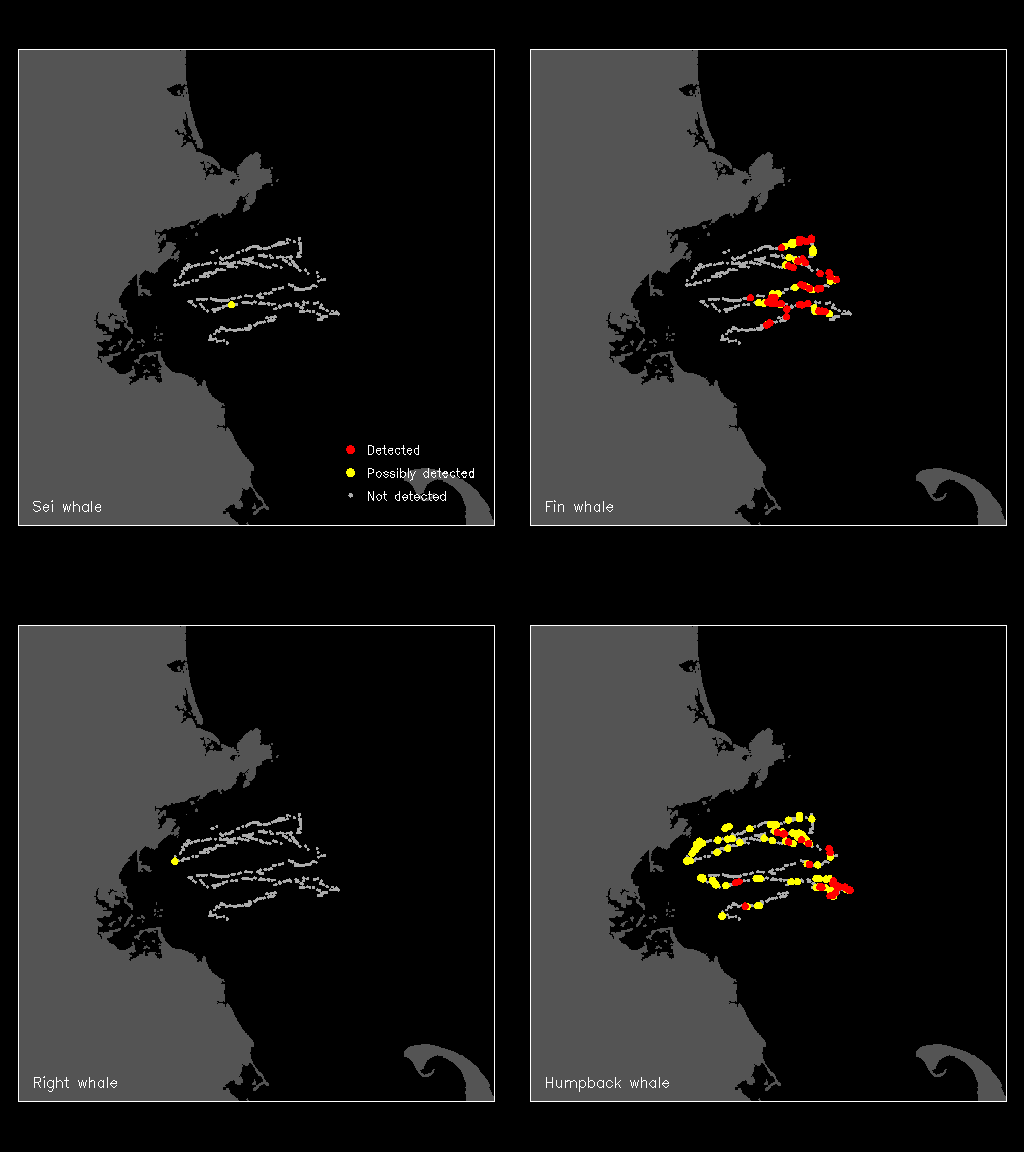Spawning Cod Glider Mission
Woods Hole Oceanographic Institution
Stellwagen Basin, Gulf of Maine, December 2014
Study objectives
Gliders were deployed in Stellwagen Basin between Massachusetts Bay and Stellwagen Bank in the western Gulf of Maine to locate and study spawning cod and to characterize the occurrence, distribution, and habitat of cetaceans. The gliders were equipped with instruments to (1) detect cod that were tagged with acoustic transmitters, (2) record the low-frequency sounds that male cod make on the spawning grounds, (3) record, detect, classify, and report baleen whale calls, (4) record mid-frequency whistles produced by dolphins, and (5) measure oceanographic conditions (including temperature, salinity, chlorophyll fluorescence, and turbidity). Two gliders are following the same survey track, with one roughly 12 hours behind the other.
Principal Investigators: Chris McGuire (The Nature Conservancy), Micah Dean (Massachusetts Division of Marine Fisheries), Bill Hoffman (Massachusetts Division of Marine Fisheries), Doug Zemeckis (University of Massachusetts Dartmouth), Sofie Van Parijs (NOAA Northeast Fisheries Science Center), Leila Hatch (NOAA Stellwagen Bank National Marine Sanctuary), and Mark Baumgartner (Woods Hole Oceanographic Institution)
Platform Information
Slocum glider we04
Slocum glider we10
Platform we04
Platform track:

Analyst-reviewed species occurrence maps:

Daily analyst review:
| | Detected |
| Possibly detected |
| Not detected |
Links to detailed information for platform we04:
Automated detection data
DMON/LFDCS Diagnostics
Platform diagnostics
Platform we10
Platform track:

Analyst-reviewed species occurrence maps:

Daily analyst review:
| | Detected |
| Possibly detected |
| Not detected |
Links to detailed information for platform we10:
Automated detection data
DMON/LFDCS Diagnostics
Platform diagnostics
Questions
Please email Mark Baumgartner at mbaumgartner@whoi.edu. For a general desciption of the detection system and the autonomous platforms, visit dcs.whoi.edu.
Acknowledgements
The gliders were expertly prepared and deployed by Ben Hodges (WHOI), with assistance from the captain and mate of the R/V Auk. Support for the deployment and operation of the gliders was provided by NOAA and The Nature Conservancy. The DMON acoustic instrument was developed by Mark Johnson and Tom Hurst at WHOI. Support for the development, integration, and testing of the glider DMON/LFDCS was provided by the Office of Naval Research and the NOAA National Marine Fisheries Service Advanced Sampling Technologies Working Group in collaboration with the Northeast Fisheries Science Center's Passive Acoustics Research Group (leader: Sofie Van Parijs).
Home



